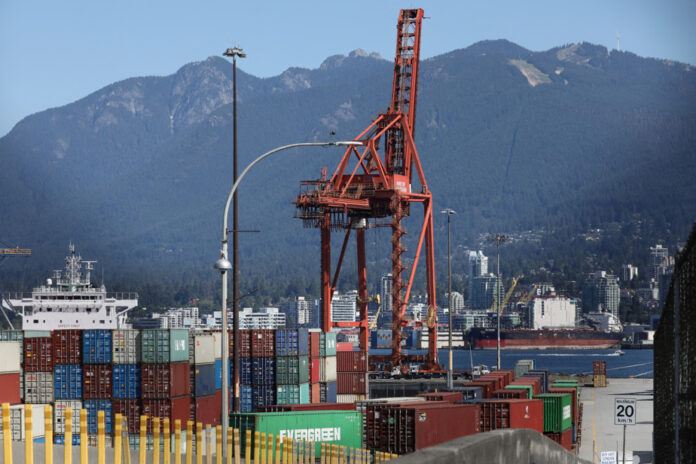The Canada Industrial Relations Board (CIRB) was given a mandate on Saturday to investigate and possibly end the labor dispute at British Columbia ports, after the union representing the workers rejected a second settlement agreement. principle.
Federal Labor Minister Seamus O’Regan explained the decision in a statement, saying he had asked the CIRB to determine whether he believes it will still be possible to resolve the dispute at the bargaining table.
If the CIRB determines that the union’s rejection of the tentative agreement on Friday has eliminated any chance of resolving the dispute through negotiation, it will have to “impose either a new collective agreement or binding arbitration to resolve the remaining points of collective bargaining”.
“This uncertainty cannot last. While operations have resumed at British Columbia ports, we need lasting stability for the countless workers and businesses that depend on them,” Minister O’Regan said.
“Our economy cannot bear any further disruption due to this misunderstanding. Following an Incident Response Group meeting, which the Prime Minister attended on July 19, the government is ready for any options and contingencies,” he said.
The Incident Response Group, a select club of ministers and senior officials, meets only in situations of national crisis.
This will be the CIRB’s second intervention in the months-long dispute between the International Longshoremen’s and Warehousemen’s Union of Canada and the BC Maritime Employers Association.
On July 19, the CIRB ruled that a brief return to the picket lines by the longshoremen was illegal because they failed to provide the required notice. The workers had previously walked out from July 1 to 13.
The exit of Minister O’Regan on Saturday came the day after the rejection of the second agreement in principle reached in this file. The agreement drafted by a federal mediator was rejected by members of the union, which represents 7,400 workers.
Several business groups have therefore renewed their calls for the federal government to legislate to end the conflict. In early July, during the shutdown, billions of dollars in goods were trapped in the approximately 30 port terminals that were affected by the job action in British Columbia.
In a statement, Alberta Premier Danielle Smith described the situation as a “logistical nightmare” for the western Canadian economy. She called on all federal parties to “immediately return to Ottawa to pass back-to-work legislation.”
The Business Council of Canada, the Canadian Federation of Independent Business and the Greater Vancouver Chamber of Commerce echoed Smith’s sentiments.
“Workers and businesses in many sectors across Canada could be affected if the dispute continues, not to mention all Canadian families facing rising prices,” said the President and CEO. from the Business Council of Canada, Goldy Hyder. ” Enough is enough. »
Greater Vancouver Board of Trade President Bridgitte Anderson added that Canada cannot afford to live with the negative fallout from a possible new strike.
“The union has now rejected agreements twice. It is time for the federal government and opposition parties to step in to ensure that our ports remain open. Only in this way can we avoid unnecessarily fueling inflation and affecting other jobs. »
At odds with the business community, NDP Leader Jagmeet Singh instead argued that the best thing to do was to bring the parties back to the negotiating table.
“We must not lose sight of what is at stake for BC port workers, but also for all workers,” Singh wrote in a statement. A job that earns a living, feeds a family, and puts a roof over your head isn’t too much to ask when CEOs are making record profits. »
The deal that was rejected by the union on Friday included a 19.2% wage increase and a signing bonus of about $3,000 per full-time worker. The deal would have “potentially” increased the median annual wage of union longshoremen from $136,000 to $162,000, not including pension and benefits.
